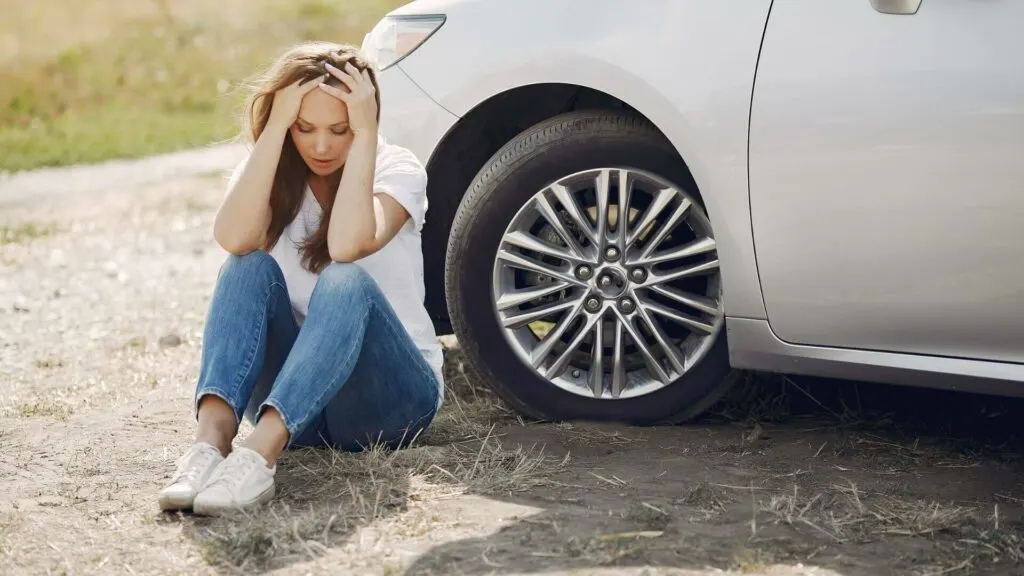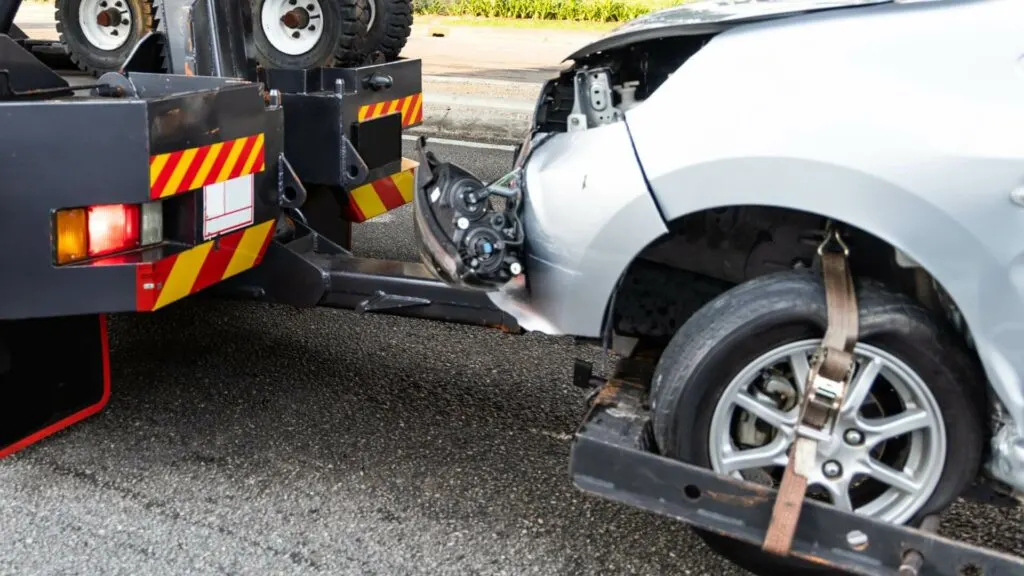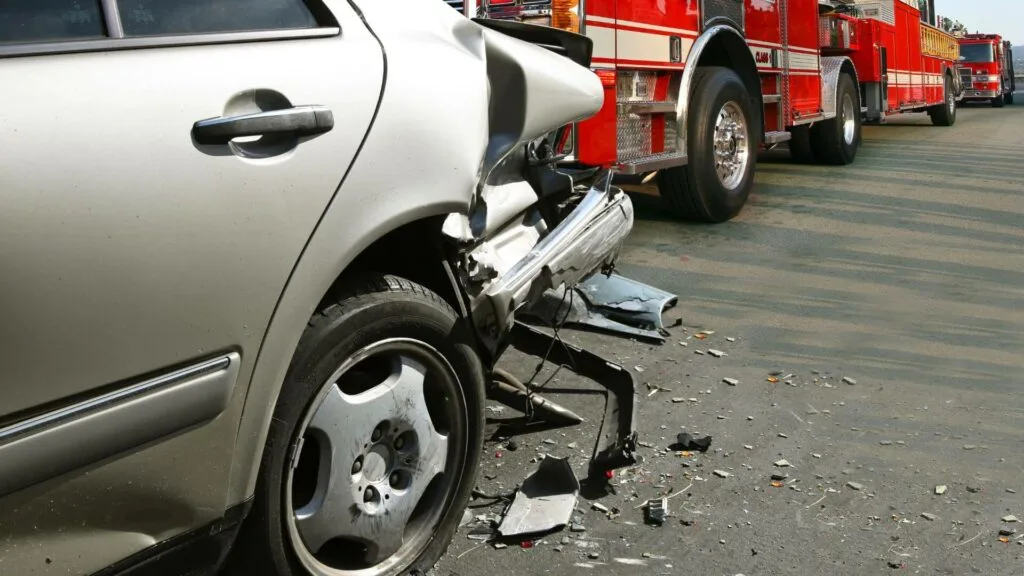In the United States, certain traffic and insurance laws can vary from state to state. When it comes to auto accidents, legal proceedings may actually change from state to state. For example, liability and fault laws vary depending on the state.
If you’re traveling for work or vacation and find yourself in an unfamiliar state, an accident may follow different procedures depending on where you are. What do you do if you get caught up in an accident out of state? Where do you file claims? What state’s laws apply? This guide will walk you through it all.

Procedures to Follow Regardless of State
It may be confusing to think about the procedures and laws of different states when you’re in an out-of-state car accident. However, there are a few proceedings you should always follow no matter where you are after a car accident.
Get to Safety
If you’re able, be certain to get out of harm’s way, such as oncoming traffic, and try not to strain or put weight on severe injuries.
Contact Help
Dialing 911 after an accident will notify the police and emergency medical technicians. This will help injured parties file a police report. Police reports are important evidence if lawsuits occur or insurance claims are needed.
Take Pictures
Photographs of car or motorcycle damage are great evidence for legal cases, insurance claims, and repair quotes. Photographing your injuries may help in a potential legal case, so you may want to err on the side of caution even if you don’t think you’ll be involved in a lawsuit.
Gather Information
Be sure to get the name, contact information, license plate number, and insurance policy information for all involved parties and vehicles. Take note of the type of vehicle as well, although this is typically found in the police report. Gather contact information for any eyewitnesses on the scene if applicable.
Seek Medical Care
Even if injuries seem minor, seeking medical care establishes a record of care, as well as ensures that any hidden injuries get treated. Even if you receive a clean bill of health, peace of mind is always important.
Contact an Attorney
An attorney can be useful even if you don’t want to file a lawsuit. They can represent you if there are any criminal charges or lawsuits against you. Additionally, they can help you file insurance claims and contest any denials.
Car or Motorcycle Insurance Laws

Auto insurance policies typically offer nationwide coverage. Therefore, if you need to file an insurance claim, you can do so using the policy’s standard methods even if the accident occurred out of state. However, what the policy will cover and who is liable can change depending on the state you’re in.
At-Fault States
Places like North Carolina or Tennessee are considered ‘at-fault’ states. This means that the insurance policy of the at-fault party will be responsible for paying insurance claims. Additionally, it means that you can pursue legal action against the at-fault party if desired.
No-Fault States
States such as Hawaii and Florida are considered ‘no-fault’ states. This means that regardless of whose fault the accident was, each individual person will file claims with their own insurance policy, not the at-fault persons’.
Personal Injury or Wrongful Death Cases
If any accident parties wish to pursue legal action for personal injury or wrongful death after an accident, where you’ll do this depends on the state in which it occurred. Contacting an attorney and filing a lawsuit must happen in the state where the accident occurred. If you’re in an out-of-state accident, then this will be different than contacting an attorney in your home state. Since the accident occurred out-of-state, legal proceedings must follow the laws of that particular state, not your state.
Statute of Limitations
The statute of limitations for filing a personal injury, wrongful death, or other type of case also varies depending on the state. These time limits can range from two to five years, and they vary depending on the type of case as well. For example, in Illinois, the personal injury statute of limitations is two years, but for property damage, it is five.
Traffic Laws in Different States
Traffic laws may also vary slightly from state to state. Traffic laws must be followed correctly according to the state you’re in, not the state you’re from. For example, in California, texting and driving is illegal, but this is not a law in Nebraska. When you’re driving through different states, be certain to familiarize yourself with varying traffic laws to ensure you’re not at fault.
It’s also good to acknowledge the risks while out-of-state driving. In unfamiliar places, roads may be hazardous, or accident risks may rise. Big cities like New York City or San Diego see an increased risk of accidents due to busy streets. Even scenic routes through smaller states like Tennessee can be risky; there were 263 large truck accidents in Robertson County alone. Be mindful of unfamiliar roads and territories.

Out-of-State Accident Guide: What to Do & Laws to Know
An out-of-state car accident can be confusing and frustrating. However, familiarizing oneself with the local laws where the accident occurred can reduce headaches. Insurance companies will typically provide coverage nationwide. If you need legal assistance, contacting an attorney may be useful. Be wary of local driving laws and hazards regardless of where you are to minimize risk.

Jessi is the creative mind behind The Coffee Mom, a popular blog that combines parenting advice, travel tips, and a love for all things Disney. As a trusted Disney influencer and passionate storyteller, Jessi’s authentic insights and relatable content resonate with readers worldwide.
